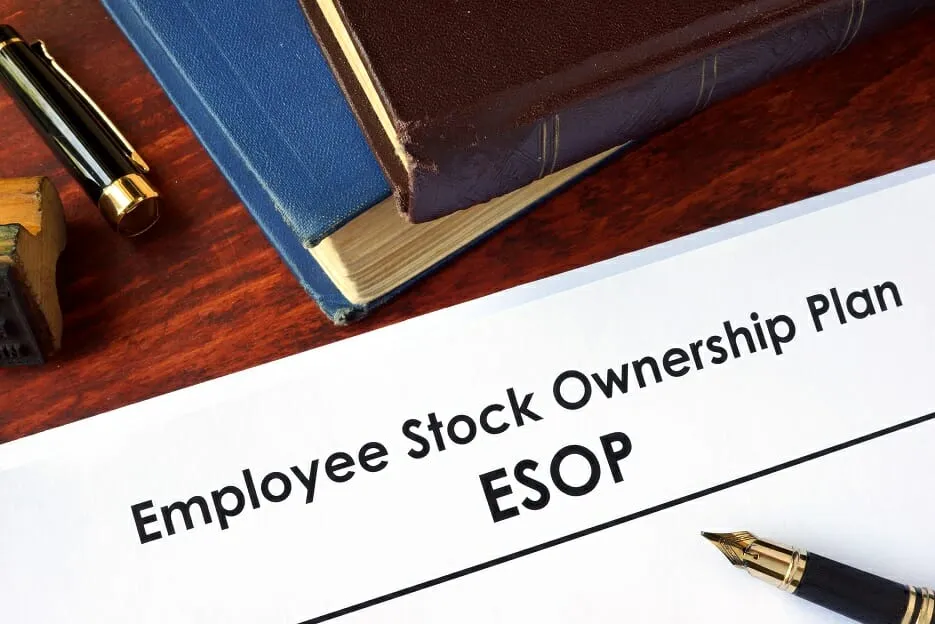Understanding the Financial Impact of Employee Stock Ownership Plans (ESOPs): A CPA’s Guide

ESOPs (Employee Stock Ownership Plans) and other customized advantages, such as employee health insurance and greater career progression chances, attract and retain top talent.
Startups, along with CPA in North Dallas, Texas, have discovered that ESOPs are a compelling incentive to join a company, in addition to the in-hand compensation. Employers can enhance their compensation packages through the inclusion of ESOPs, especially if they can’t initially afford high compensation packages. Moreover, ESOPs instill a sense of ownership in employees.
We will explain everything regarding ESOPs in this blog. Continue reading.
Understanding ESOP
ESOPs are a compensation scheme that allows employees to gain business stock gradually. As per the terms of the ESOP contract, employees may convert their ESOPs into stocks at a predetermined rate over a specified length of time (the “vesting/option period”). It’s crucial to remember that ESOPs do not immediately grant employees stock ownership.
Features And Characteristics of ESOPs
- Employees receive ESOPs at no cost. They are included in the CTC (Cost to Company) structure for employees.
- On the vesting date, the employee might exercise their ESOP and convert it into company shares. On the other hand, the grant date is the day the employee and employer formally agree to award the ESOP.
- ESOPs may be completely or partially exercised.
- Employers can offer ESOPs to all or only a subset of their employees, depending on their hiring strategy.
- ESOPs may occasionally be exercised gradually, in installments, over a predetermined length of time.
- The exercise price, also known as the grant price, is the cost at which staff members may purchase shares of a corporation through ESOPs.
- Employees are not required to follow their ESOPs.

Why Are ESOPs A Great Option?
Employee Stock Ownership Plans (ESOPs) are tools businesses use to maintain participant attention on corporate performance. ESOP shares are a financial incentive included in the employee salary package. These shares link compensation directly to the company’s success and stock price appreciation. As shareholders, plan participants benefit when the company performs well. This structure encourages them to act in the best interest of all shareholders.
Employees are offered the chance to increase their income, get raises, and, ultimately, be acknowledged for their commitment and diligence. A stake in the business should increase employee appreciation and add excitement to daily work.
Understanding The Working Of Employee Stock Ownership Plan (ESOP)?
Through an ESOP, staff members get the option to purchase company equity. Additionally, ESOPs are provided as a retirement benefit.
Establishing ESOPs as trust funds, businesses can support them with freshly issued shares, cash infusions to purchase already-issued firm stock, or loans made possible by the corporation to purchase stock. Companies of diverse sizes, incorporating several sizable publicly traded enterprises, use ESOPs.
Despite what some individuals claim, businesses with an ESOP are not allowed to discriminate and must designate a trustee to serve as the fiduciary for the plan. For example, ESOP participants can’t have voting rights or for senior employees to get more shares. To be honest, though, top staff members will inevitably accrue and become more invested in the company over time.
Conclusion
ESOPs typically benefit both businesses and employees by promoting increased effort and dedication in exchange for larger monetary benefits. However, they can be annoying if the participant cannot completely comprehend the parameters of their specific plan, as they are not always clear-cut.
Every ESOP is different. Understanding the rules governing activities like vesting and withdrawals is critical to maximizing this benefit and avoiding potentially losing out on a sizable additional bonus.






